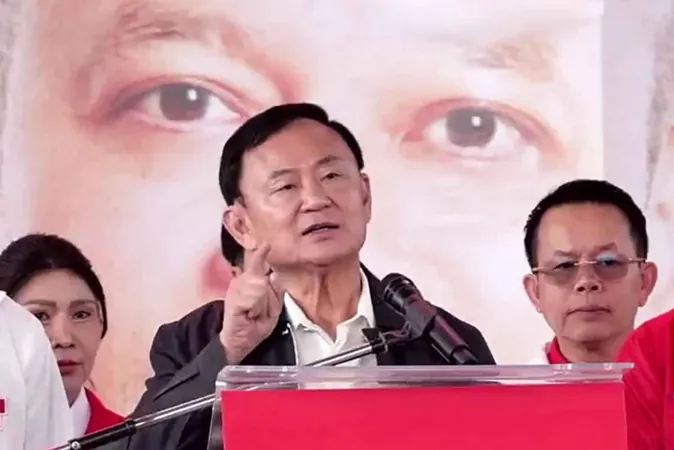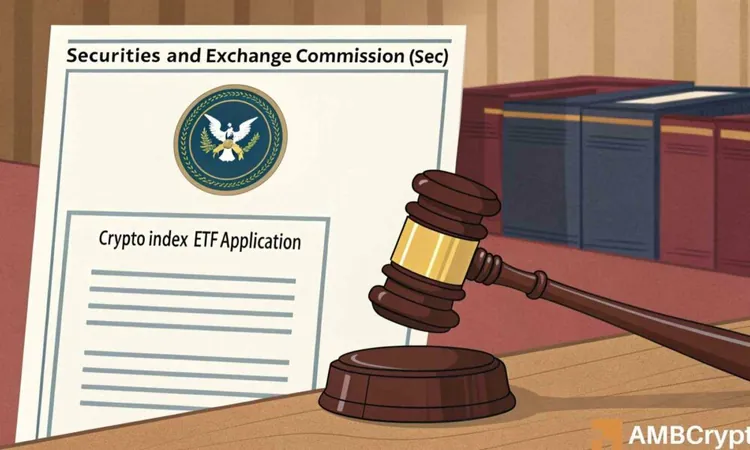
Thaksin Defends Casino Plan Amid Controversy: "It’s More Than Just a Casino!"
2025-01-20
Author: Yu
Thaksin's Assertions About the Casino-Economic Initiative
Former Prime Minister Thaksin Shinawatra has stepped into the heated debate surrounding the government’s proposed casino-entertainment complex, asserting that the critics are misrepresenting the project. Speaking to supporters during a campaign event in Maha Sarakham, Thaksin insisted that the proposed venues would be more than just gaming facilities, with over 90% of activities dedicated to other forms of entertainment.
Thaksin emphasized the project’s economic potential, claiming that each complex would generate at least 20,000 new jobs, with workers earning a minimum salary of 20,000 baht monthly. “Those who label this initiative as merely a casino are spreading falsehoods,” he declared.
Historical Context and Current Approval
Interestingly, he revealed that the idea of integrating a casino within an entertainment complex dates back to the Thai Rak Thai party's administration, even before Singapore launched its own successful projects. “While Singapore has successfully moved forward with their concept, we faced intense opposition. Now the public is starting to understand the vision,” Thaksin remarked, indicating a shift in perception among the populace.
Political Reactions and Concerns
Recently, the cabinet approved the entertainment complex bill in principle, but Thaksin dismissed proposals for a public referendum to decide the matter, maintaining that the government should advance the plan without further delay.
However, not all political voices support the initiative unconditionally. People's Party MP Nont Paisanlimcharoenkit has raised alarms over potential lapses in regulatory measures to prevent money laundering. He warned that while licensed operators would be tasked with ensuring compliance, there is a risk of significant governmental oversight failings.
The criticisms continued as List-Democrat MP Jurin Laksanawisit called for the project to be subject to a public vote, arguing that it was never part of the governing party’s election manifesto, thereby requiring public endorsement.
The Debate Continues
In the Senate, Senator Nantana Nantavaropas highlighted the complexities and costs associated with conducting a public referendum but acknowledged that if practical issues could be addressed, a public vote could be beneficial.
As the political landscape becomes increasingly charged and discussions evolve, the fate of the casino-entertainment complex remains uncertain, laden with economic implications and societal concerns that need careful evaluation. Will the government’s vision resonate with the public, or will opposition forces succeed in derailing this ambitious plan? Stay tuned as the debate continues to unfold!


 Brasil (PT)
Brasil (PT)
 Canada (EN)
Canada (EN)
 Chile (ES)
Chile (ES)
 Česko (CS)
Česko (CS)
 대한민국 (KO)
대한민국 (KO)
 España (ES)
España (ES)
 France (FR)
France (FR)
 Hong Kong (EN)
Hong Kong (EN)
 Italia (IT)
Italia (IT)
 日本 (JA)
日本 (JA)
 Magyarország (HU)
Magyarország (HU)
 Norge (NO)
Norge (NO)
 Polska (PL)
Polska (PL)
 Schweiz (DE)
Schweiz (DE)
 Singapore (EN)
Singapore (EN)
 Sverige (SV)
Sverige (SV)
 Suomi (FI)
Suomi (FI)
 Türkiye (TR)
Türkiye (TR)
 الإمارات العربية المتحدة (AR)
الإمارات العربية المتحدة (AR)